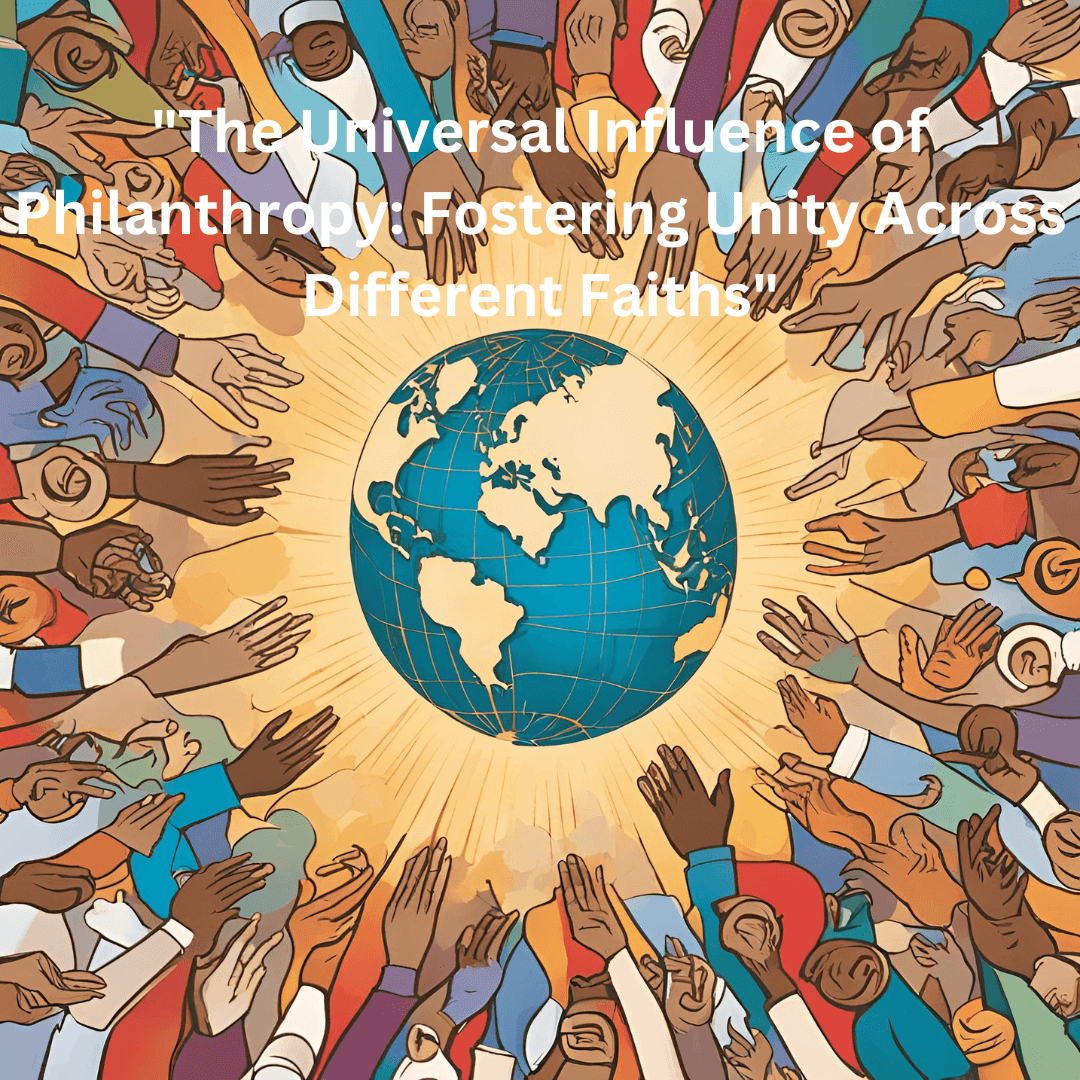Philanthropy, the act of giving to support the welfare of others, transcends cultural, religious, and geographical boundaries. It is a universal language that speaks to our shared humanity. Rooted in the core values of major world religions, philanthropy is a powerful tool for fostering unity and compassion among diverse communities. In this article, we explore how various religious traditions view and practice philanthropy, and we highlight the mission and impact of Embrace Relief, an organization that embodies these timeless values.
Philanthropy in Major Religions
Christianity
In Christianity, philanthropy is deeply ingrained in the teachings of Jesus Christ. The parable of the Good Samaritan exemplifies the Christian call to love and care for one’s neighbor, regardless of social or ethnic differences. The concept of “agape,” or unconditional love, further emphasizes the importance of selfless giving. Christian charities have a long history of providing aid to those in need, with organizations like Catholic Charities and World Vision making significant global impacts through their humanitarian efforts.
Islam
Islamic teachings also place a strong emphasis on philanthropy. Zakat, one of the Five Pillars of Islam, requires Muslims to give a portion of their wealth to those in need. In addition to Zakat, Sadaqah (voluntary charity) and Waqf (endowments for public welfare) are essential aspects of Islamic philanthropy. The Hadith, sayings of the Prophet Muhammad, encourage Muslims to help others, reinforcing the value of generosity. Historically, Islamic philanthropy has supported education, healthcare, and social welfare, with endowments playing a crucial role in the development of these services.
Judaism
In Judaism, the concept of Tzedakah, often translated as “charity,” is a fundamental obligation. It is viewed not merely as a voluntary act of kindness but as a moral duty. The Jewish tradition of Tikkun Olam, meaning “repairing the world,” underscores the communal responsibility to contribute to the betterment of society. Jewish philanthropic organizations, such as the American Jewish Joint Distribution Committee and the Jewish Federation, continue to support global initiatives aimed at alleviating poverty, providing education, and promoting social justice.
Buddhism
Buddhism teaches the importance of compassion and generosity as part of the path to enlightenment. The Four Noble Truths and the Eightfold Path guide Buddhists in their ethical conduct, with Dana (generosity) being one of the key practices. Buddhist monastic orders, supported by laypeople, often engage in charitable work, including providing food, healthcare, and education to the needy. The act of giving is seen as a way to cultivate a pure mind and build good Karma, ultimately leading to spiritual growth.
Hinduism
Philanthropy in Hinduism is closely linked to the concepts of Dharma (righteous duty), Karma (action and its consequences), and Seva (selfless service). Hindus believe that performing charitable acts helps one progress toward Moksha (liberation from the cycle of rebirth). Hindu temples often serve as centers for community service, offering food, education, and healthcare to the underprivileged. The tradition of Anna Dana, or food donation, is a common practice, reflecting the belief that feeding the hungry is one of the highest forms of charity.
The Power of Giving
Philanthropy benefits both recipients and givers. Research has shown that acts of giving can positively impact mental health and well-being, fostering a sense of purpose and satisfaction. On a social level, philanthropy strengthens communities and promotes social cohesion by bringing people together for a common cause. Spiritually, giving is a way to connect with the divine and fulfill one’s religious duties, offering rewards in this life and beyond.
Additional Considerations
Philanthropy has a rich history in different cultures and religions, with each tradition offering unique perspectives on giving. However, philanthropic organizations today face challenges such as limited resources, political obstacles, and the complexities of global connectivity. These challenges can hinder the effectiveness of charitable work and require innovative solutions.
Despite these challenges, new technologies and the increasing interconnectedness of our world present opportunities for innovative approaches to charitable work. Furthermore, philanthropy can bridge interfaith dialogue, promoting understanding and cooperation among diverse religious communities. As we look to the future, the universal values of philanthropy will continue to guide us toward a more harmonious and compassionate world.
Embrace Relief: A Case Study
Embrace Relief, a global humanitarian organization, exemplifies the principles of philanthropy rooted in religious values. The organization aligns its mission with the core principles of various religions by focusing on compassion, service, and the betterment of humanity. Through programs that provide access to healthcare, education, and clean water, Embrace Relief demonstrates the power of interfaith cooperation in addressing global challenges. The organization’s work has impacted communities worldwide, improving lives and fostering a sense of shared responsibility and connection among diverse populations.
Conclusion
Inspired by the teachings of major world religions, philanthropy has the power to create a more just and compassionate world. By giving, we not only help those in need but also enrich our lives, strengthen our communities, and fulfill our spiritual obligations. Organizations like Embrace Relief play a crucial and hopeful role in bridging cultural and religious divides to bring about positive change. As we reflect on the transformative power of philanthropy, let us be encouraged to support these efforts and contribute to the betterment of humanity.
To learn more about Embrace Relief’s commitment to philanthropy and its programs’ support of those who need it most, click here.




















